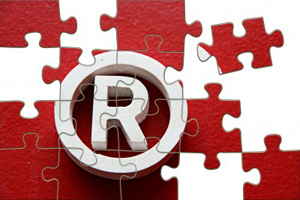10 Things You Should Know About Trademarks

A trade mark is a sign that you can use to distinguish your business’ goods or services from those of other traders.It can be represented graphically in the form of your company’s logo or a signature.Through a registered trade mark, you can protect your brand (or “mark”) by restricting other people from using its name or logo. The following are 10 things you should know about trademarks.
1. Trademarks are a vital business asset and a valuable marketing tool. Trademarks are used by businesses to distinguish the origin and quality of the goods or services they provide from similar products or services offered by competitors. A strong brand identity will help you both attain and retain customers.
2. Merely having registered a business, company, and/or a domain name does not mean that you own the rights to these names. Only a trade mark can provide such protection, and you should seek that protection as early as possible.
3. Trade mark registration is available for any distinctive signs used in the course of trade. A sign may comprise names, words, letters, phrases, numbers, labels, smells, shapes, logos, pictures, sound, colour, aspects of packaging, or any combination of these.
4. Only distinctive signs will be registered, i.e. signs that distinguish your goods and services from your competitor’s.
5. There are various grounds for refusal of registration, especially if the mark would deceive customers or cause confusion. Applications that contain a person’s name or any representation of that person without their consent, any flags, state emblems, or representation of a Royal Family will be refused. Descriptive cannot be registered either. The same applies to common surnames or geographical names. You can also not register marks identical or similar to those that are already registered in their respective category of goods/services.
6. Trademarks must be registered in relation to specific categories of goods and/or services. The more categories you apply for, the more expensive it gets.
7. The registration process operates on a first come, first serve basis. The first to file is the owner of the mark. Convention priority applications may extend that. At the date of application, you must be using or intending to use the sign in the course of trade.
8. Registration is effective for 10 years, but can be renewed indefinitely at 10-year intervals. There is no limit on the number of times a registration may be renewed.
9. A trademark provides its owner with the exclusive right, in the country or countries in which it has been registered, to use the mark on or in relation to the goods or services in respect of which it was registered. You can sell, assign, or license your trade mark.
10. Once you have a registered trademark, you can take legal action against any business that free rides on your reputation for infringing your trademark should the owner of that business name use it for goods or services like those covered by your trademark registration.





